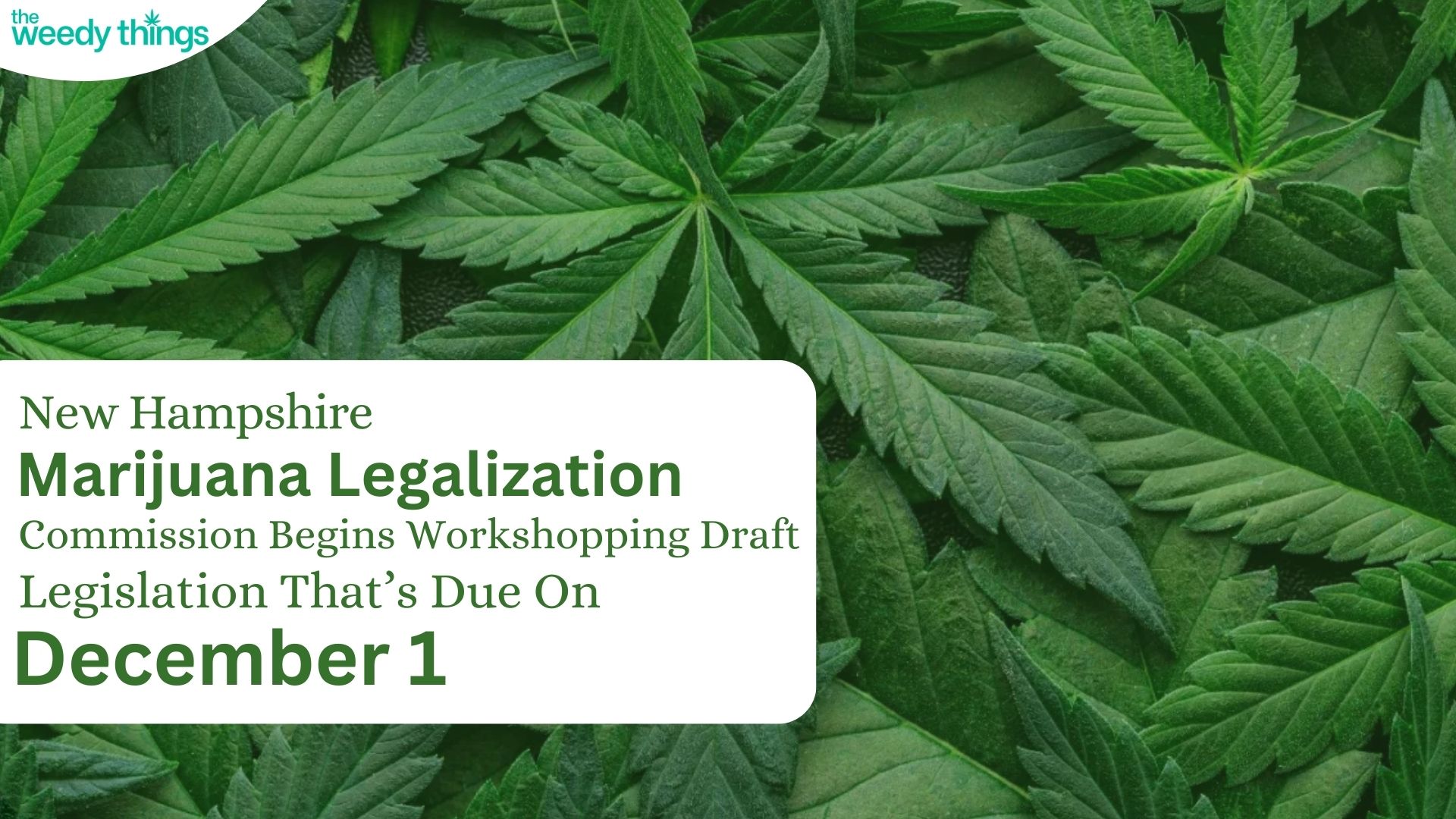The Granite State, New Hampshire, is on the cusp of a groundbreaking change as the Marijuana Legalization Commission gets to work on draft legislation that could pave the way for legal recreational cannabis. With the proposed deadline for this legislation set for December 1, 2023, stakeholders, policymakers, and the public are keenly following the developments.
New Hampshire has been taking slow but steady steps towards cannabis reform in recent years. The commission’s formation represents a significant milestone in the journey toward potential legalization.
The Commission's Formation and Purpose
The Marijuana Legalization Commission, established by the New Hampshire legislature, is tasked with studying the potential impact of legalizing recreational marijuana and recommending a comprehensive legislative framework for regulation and taxation.
Its creation reflects growing support for cannabis legalization in the state, with a focus on implementing a responsible, equitable, and effective system.
Key Milestones on the Road to Legalization
The state’s progress toward cannabis legalization in recent years has been marked by several noteworthy developments:
Decriminalization: In 2017, New Hampshire decriminalized the possession of small amounts of marijuana, making it a civil offense rather than a criminal one.
Medical Marijuana: New Hampshire approved the use of medical marijuana in 2013, creating a regulatory framework for patients to access medical cannabis for qualified medical conditions.
Public Opinion Shift: Polls in the state consistently showed a majority of residents in favor of legalizing recreational cannabis, providing momentum for legislative action.
Study Commissions: The state has taken a deliberate approach by forming study commissions to examine the impact of legalization in areas such as regulation, taxation, and social equity.
What's at Stake for New Hampshire?
The potential legalization of recreational marijuana in New Hampshire holds various implications for the state:
Economic Growth: Legalization could open up new revenue streams for the state, creating jobs and boosting tourism as cannabis enthusiasts flock to the state.
Regulation: The state has an opportunity to regulate the cannabis market, ensuring that products meet quality standards and that sales are subject to taxation.
Social Equity: A carefully crafted legalization framework can address historical inequalities in the cannabis industry, promoting opportunities for marginalized communities.
Public Health and Safety: Regulations can help ensure that cannabis is consumed responsibly and that potential negative consequences are mitigated.
Potential Models for Legalization
As the commission begins workshopping draft legislation, they will likely consider various models for legalization. Here are some of the key options:
State-Run Dispensaries: In this model, the state takes direct control of the sale and distribution of cannabis, similar to some alcohol control systems.
Licensed Private Retailers: This model involves allowing private businesses to obtain licenses for the sale and distribution of cannabis, akin to how alcohol is regulated in most states.
Online Cannabis Dispensary: The digital landscape is a critical component of modern cannabis sales. Some states permit online sales and delivery services, allowing for convenience and safety in the purchase of cannabis.
Local Control: Decisions about the sale and distribution of cannabis could be made at the local level, giving municipalities the authority to determine what works best for their communities.
Local Cannabis Stores and Their Role
Local cannabis stores, if incorporated into New Hampshire’s legalization framework, could become hubs for responsible and regulated access to cannabis products. These stores could offer consumers a safe and educational environment, and local communities could benefit from increased tax revenue.
For example, a local cannabis store in a town like Manchester, Concord, or Portsmouth could offer a range of cannabis products, including various strains, edibles, concentrates, and more. Knowledgeable staff at these establishments would assist customers in making informed choices, emphasizing responsible consumption.
Mohawk Cannabis Store: A Possible Model
One potential model to consider is the “Mohawk Cannabis Store” concept. Inspired by the successful cannabis retail approach in Mohawk territories in Canada, this model combines local control, community involvement, and responsible sales practices. The key features of the Mohawk Cannabis Store include:
Local Governance: In this model, each municipality would decide whether they want to allow cannabis sales and create their own regulations for local cannabis stores.
Community Ownership: These stores could be owned and operated by the local community or Native American tribes, reinvesting profits back into the community.
Safety and Education: Emphasizing responsible use, these stores would prioritize consumer education and safe access to cannabis products.
Taxes and Revenue: Local communities could benefit from the tax revenue generated by cannabis sales, which could be used to support public services and initiatives.
The Mohawk Cannabis Store model offers an intriguing blend of local control, economic opportunity, and community engagement.
A Path Forward for New Hampshire
As the New Hampshire Marijuana Legalization Commission works on draft legislation, it is evident that the potential legalization of recreational cannabis in the state represents an exciting opportunity. With careful consideration of various models, such as the “Mohawk Cannabis Store” approach, New Hampshire has the chance to create a responsible, equitable, and prosperous cannabis market that could benefit residents and the state’s economy.
Come December 1, 2023, New Hampshire may well have a blueprint for cannabis legalization that can serve as a model for other states in their pursuit of responsible and well-regulated access to recreational marijuana.
Frequently Asked Questions
Yes, a commission is drafting legislation, due on December 1.
The commission aims to formulate comprehensive legislation for marijuana legalization in New Hampshire.
The draft legislation is expected to address both medical and recreational marijuana use in New Hampshire.
The draft legislation is due on December 1, marking a crucial step in New Hampshire’s marijuana legalization efforts.
If passed, it could shape the future of marijuana legalization in New Hampshire, impacting both medical and recreational cannabis use.




